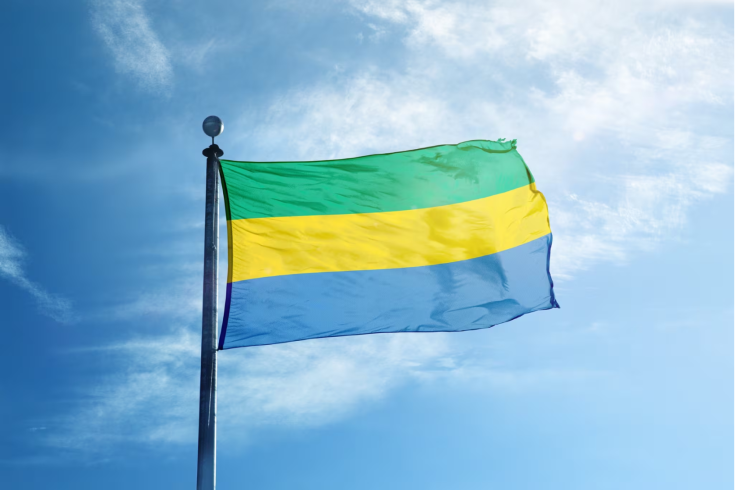Freeze Our Ousted Regime's Illicit Wealth to Power a Stronger UK-Gabon Future
To build a just and future-ready alliance, the UK must return stolen wealth and invest in shared prosperity.

For all the articles written about the coming AI revolution and Britain's ambition to stand at its forefront, less attention has been given to the physical foundations that underpin the innovation needed to turn rhetoric into action. Indeed, from a geopolitical standpoint, this is where the real battle is taking place.
Western nations are vying for influence, particularly against China. Greenland, Ukraine, and Australia are only a handful of examples of where we have recently seen this play out. But the most significant struggle for influence is taking place in Africa, the world's most mineral-rich continent on the planet. China has an enviable head start over its rivals.
It's through this lens that the relationship between Gabon and the United Kingdom should be seen. Gabon is among the world's most resource-rich nations. We are the second-largest producer of manganese globally. We also possess rare earth elements such as niobium, tantalum, and zirconium, which are critical to the production of electric batteries, semiconductors, and magnets used in wind turbines and AI computing systems.
It is this mineral wealth that makes Gabon a vital link in building the resilient, ethical supply chains the UK needs to sustain its technological leadership.
Under the leadership of our current President, Brice Clotaire Oligui Nguema, who was elected earlier this year after a transparent, free and fair election, Gabon has chosen a different path. Unlike many African nations, President Oligui Nguema has deliberately sought to diversify Gabon's economy and geopolitical direction, seeking closer ties with Western nations, particularly the United Kingdom, and the wider Commonwealth following our admission in June 2022.
For this partnership to flourish, however, it must work both ways.
In 1960 Gabon achieved independence from France. Unfortunately, and as history shows, for many post-colonial nations, the blessing of mineral wealth has too often been a curse, enriching a small elite while leaving the majority behind. Gabon was no exception. Having finally thrown off the shackles of French rule, they were soon to be replaced by another form of state control. A famous writer, Angèle Rawiri, summed it up perfectly when she wrote: [Translated] 'We dreamt of a new dawn, but woke up to the same old shadows.'
For over 56 years the Bongo family ruled Gabon, first under Omar Bongo who held the Presidency until his death in 2009, and subsequently under his son, Ali Bongo Ondimba. Under their rule, the family accumulated untold wealth by diverting public funds and awarding crony contracts to political allies. So rampant was this corruption that, despite my country's vast oil and mineral wealth, corruption, mismanagement, and debt left one-third of our population in poverty, creating one of Africa's starkest divides between natural wealth and human welfare.
Despite being ousted from power in August 2023, much of the Bongo family's assets are held abroad, most notably in London, where family members, including Ali Bongo's son, Noureddin Bongo Valentin, and Ali's wife, Sylivia Bongo Ondimba, are linked to companies and property holdings registered in Mayfair. The pair have also refused to attend a court hearing to address these charges.
The United Kingdom, as a global leader in financial transparency, has both a moral and strategic obligation to ensure that these ill-gotten gains are frozen and ultimately returned to the Gabonese people. It would go some way to correcting the injustices they have imposed on my country and its people.
As the world enters a new technological era, the relationship between our two countries has never been more strategically significant. The UK brings to the table much-needed capital and technological expertise. Gabon, meanwhile, brings to the table not just resources but also environmental leadership. Ninety per cent of the country is covered by rainforest and serves as one of the world's largest carbon sinks. Gabon's government has taken great efforts to protect this natural habitat and to prevent deforestation.
While our two nations are already working at a multi-lateral level to ensure the protection of Gabon's rainforest, we should expand this relationship to transform raw material extraction into shared value creation.
We would welcome the UK's partnership in developing value-added processing industries so that Gabon no longer exports only raw minerals but also refines and processes them domestically, as announced by the President Oligui Nguema.
The UK should also support technology transfer and skills programmes linking British expertise in AI, robotics, and green engineering with Gabon's emerging industrial base.
But, above all, this partnership must be grounded in our shared ambitions. It cannot thrive while stolen assets fund luxury lifestyles for Ali Bongo's son and Ali's wife here in the UK.
Britain must match its words on anti-corruption with deeds, tracing, freezing, and repatriating funds that rightly belong to Gabon's citizens. Gabon is looking westward with renewed hope that the long shadows may finally be receding. It is seeking partners who will respect its sovereignty and who harbour a shared ambition and a willingness to invest its future. In 2022, Gabon joined the Commonwealth. The UK has re-established a High Commission in our country after a long period of absence. These two significant developments offer a foundation upon which our two countries can embark on this new digital age through shared partnership.
But, to do so, the United Kingdom should also seize the chance to show that its commitment to fairness and accountability extends beyond its own borders. If both nations honour those principles, the relationship can become a model alliance that unites Africa's minerals and forests with Britain's innovation and technology, powering the global transition toward a cleaner, smarter, and more equitable future.
© Copyright IBTimes 2025. All rights reserved.





















